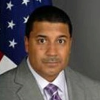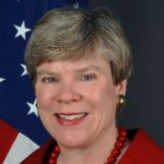An agency within the U.S. Department of State, AVC is responsible for ensuring that appropriate verification requirements and capabilities are fully considered and integrated into the development, negotiation, and implementation of new arms control, nonproliferation, and disarmament treaties, agreements, and commitments. It also serves as the main liaison to the U.S. Intelligence Community and other key policymakers for verification and compliance issues.
- Prepare, on behalf of the Secretary of State and the President, annual reports to Congress on compliance with arms control, nonproliferation, and disarmament treaties, agreements, and commitments. The reports include: “Adherence to and Compliance with Arms Control and Nonproliferation Agreements and Commitments” and “World Military Expenditures and Arms Transfers,” which appears to have ceased publication in 2003.
- Operates the Nuclear Risk Reduction Center, which is charged with the transmission, translation, and dissemination of the annual government-to-government notifications required under the implementation of 20 different arms control treaties and security agreements.
- Assesses other nations’ compliance with arms control, nonproliferation, and disarmament treaties, agreements, and commitments, working with other governments and international organizations to acquire data and relevant information for compliance assessments, and to encourage State Parties’ compliance with their commitments, and is also involved in determining when sanctions will be imposed for violations.
- Leads U.S. efforts to develop verification requirements that will eliminate the varied Weapons of Mass Destruction programs of North Koreaand Iran; seeks to strengthen a strategic security relationship with Russia through implementation of the Moscow Treaty, and the development of measures focused on reaching a post-Strategic Arms Reduction Treaty arrangement; aims to engage with China in further dialogues to resolve outstanding compliance issues; and, with Libya, works to continue utilizing the U.S.-U.K.-Libya Trilateral Steering and Cooperation Committee toward elimination of its weapons of mass destruction and long-range missiles.
- Works to create the scientific, institutional, and organizational framework to help the U.S. government effectively discriminate between naturally-occurring outbreaks of disease and a biological weapons attack, and be able to identify the perpetrator.
- Serves as the principal policy liaison for verification and compliance matters to the U.S. Intelligence community, providing guidance on funding and tasking priorities for collection resources and analytical assets to support arms control and proliferation goals.
- Table of Contents
- Overview
- History
- What it Does
- Where Does the Money Go
- Controversies
- Suggested Reforms
- Comments
- Leave a comment


The next top diplomat for arms control will be a foreign policy and defense expert with longstanding ties to Secretary of State John Kerry. Frank A. Rose, who worked in Kerry’s Senate office after graduating college, joined the State Department in June 2009 as deputy assistant secretary for space and defense policy. If confirmed by the Senate for his new post, Rose would succeed Rose Gottemoeller, who served starting in 2009 and has been nominated to be the next under secretary of state for Arms Control and International Security.
Born in Plymouth, Mass., circa 1972, Frank A. Rose earned a B.A. in History at American University in 1994 and an M.A. in War Studies at King’s College, University of London in 1999.
After graduating college, Rose served as a legislative correspondent on the staff of U.S. Senator John F. Kerry (D-Massachusetts) from June 1994 to December 1995, moving on to work as a national security analyst with Science Applications International Corporation, which is one of the leading “beltway bandit” national security consulting firms, from January 1996 to August 1998.
Returning to public service, Rose joined the Department of Defense, serving as special assistant to the assistant secretary of defense for strategy and threat reduction from August 1999 to January 2001 and as policy advisor in the office of the assistant secretary for international security policy from January 2001 to December 2005.
Rose then returned to the Hill, but served on the other side of the Dome as a professional staff member, first for the House Permanent Select Committee on Intelligence from December 2005 to January 2007, and then for the House Armed Services Committee from January 2007 to June 2009.
Rose’s only reported federal campaign contribution was $500 to President Barack Obama’s re-election effort in 2012.
-Matt Bewig
To Learn More:
John Kerry draws on Old Allies for Team at State (by Bryan Bender, Boston Globe)

Rose Gottemoeller was sworn in as the Assistant Secretary of State for Verification, Compliance, and Implementation on April 6, 2009. A longtime expert in nuclear weapons proliferation and arms control, Gottemoeller will be personally responsible for negotiating the new strategic arms-control treaty that Presidents Baraack Obama and Dmitri Medvedev, of the United States and Russia respectively, have announced would further cut each nation’s long-range nuclear arsenal. Gottemoeller starts that task with considerable respect from her Russian counterparts, one of whom recently wrote that she “has been dealing with nuclear issues for quite some time and is known as a brilliant professional. It would be difficult, almost impossible to outplay her. For Russia a draw would be almost like a victory.”
- Latest News
- D.C. Public Schools will Teach all Second-Graders to Ride a Bike
- New Rule in Germany Limits Sales of Sex-Themed E-Books to 10pm to 6am
- What Happened to the 6-Year-Old Tibetan Boy the Chinese Government Kidnapped 20 Years Ago?
- U.S. Ambassador to Turkey Photoshops his Hair Color to Mock Turkish Mayor
- Mystery Artist Calls Attention to Unfixed Potholes by Drawing Penises around Them
An agency within the U.S. Department of State, AVC is responsible for ensuring that appropriate verification requirements and capabilities are fully considered and integrated into the development, negotiation, and implementation of new arms control, nonproliferation, and disarmament treaties, agreements, and commitments. It also serves as the main liaison to the U.S. Intelligence Community and other key policymakers for verification and compliance issues.
- Prepare, on behalf of the Secretary of State and the President, annual reports to Congress on compliance with arms control, nonproliferation, and disarmament treaties, agreements, and commitments. The reports include: “Adherence to and Compliance with Arms Control and Nonproliferation Agreements and Commitments” and “World Military Expenditures and Arms Transfers,” which appears to have ceased publication in 2003.
- Operates the Nuclear Risk Reduction Center, which is charged with the transmission, translation, and dissemination of the annual government-to-government notifications required under the implementation of 20 different arms control treaties and security agreements.
- Assesses other nations’ compliance with arms control, nonproliferation, and disarmament treaties, agreements, and commitments, working with other governments and international organizations to acquire data and relevant information for compliance assessments, and to encourage State Parties’ compliance with their commitments, and is also involved in determining when sanctions will be imposed for violations.
- Leads U.S. efforts to develop verification requirements that will eliminate the varied Weapons of Mass Destruction programs of North Koreaand Iran; seeks to strengthen a strategic security relationship with Russia through implementation of the Moscow Treaty, and the development of measures focused on reaching a post-Strategic Arms Reduction Treaty arrangement; aims to engage with China in further dialogues to resolve outstanding compliance issues; and, with Libya, works to continue utilizing the U.S.-U.K.-Libya Trilateral Steering and Cooperation Committee toward elimination of its weapons of mass destruction and long-range missiles.
- Works to create the scientific, institutional, and organizational framework to help the U.S. government effectively discriminate between naturally-occurring outbreaks of disease and a biological weapons attack, and be able to identify the perpetrator.
- Serves as the principal policy liaison for verification and compliance matters to the U.S. Intelligence community, providing guidance on funding and tasking priorities for collection resources and analytical assets to support arms control and proliferation goals.
Comments


The next top diplomat for arms control will be a foreign policy and defense expert with longstanding ties to Secretary of State John Kerry. Frank A. Rose, who worked in Kerry’s Senate office after graduating college, joined the State Department in June 2009 as deputy assistant secretary for space and defense policy. If confirmed by the Senate for his new post, Rose would succeed Rose Gottemoeller, who served starting in 2009 and has been nominated to be the next under secretary of state for Arms Control and International Security.
Born in Plymouth, Mass., circa 1972, Frank A. Rose earned a B.A. in History at American University in 1994 and an M.A. in War Studies at King’s College, University of London in 1999.
After graduating college, Rose served as a legislative correspondent on the staff of U.S. Senator John F. Kerry (D-Massachusetts) from June 1994 to December 1995, moving on to work as a national security analyst with Science Applications International Corporation, which is one of the leading “beltway bandit” national security consulting firms, from January 1996 to August 1998.
Returning to public service, Rose joined the Department of Defense, serving as special assistant to the assistant secretary of defense for strategy and threat reduction from August 1999 to January 2001 and as policy advisor in the office of the assistant secretary for international security policy from January 2001 to December 2005.
Rose then returned to the Hill, but served on the other side of the Dome as a professional staff member, first for the House Permanent Select Committee on Intelligence from December 2005 to January 2007, and then for the House Armed Services Committee from January 2007 to June 2009.
Rose’s only reported federal campaign contribution was $500 to President Barack Obama’s re-election effort in 2012.
-Matt Bewig
To Learn More:
John Kerry draws on Old Allies for Team at State (by Bryan Bender, Boston Globe)

Rose Gottemoeller was sworn in as the Assistant Secretary of State for Verification, Compliance, and Implementation on April 6, 2009. A longtime expert in nuclear weapons proliferation and arms control, Gottemoeller will be personally responsible for negotiating the new strategic arms-control treaty that Presidents Baraack Obama and Dmitri Medvedev, of the United States and Russia respectively, have announced would further cut each nation’s long-range nuclear arsenal. Gottemoeller starts that task with considerable respect from her Russian counterparts, one of whom recently wrote that she “has been dealing with nuclear issues for quite some time and is known as a brilliant professional. It would be difficult, almost impossible to outplay her. For Russia a draw would be almost like a victory.”
- Latest News
- D.C. Public Schools will Teach all Second-Graders to Ride a Bike
- New Rule in Germany Limits Sales of Sex-Themed E-Books to 10pm to 6am
- What Happened to the 6-Year-Old Tibetan Boy the Chinese Government Kidnapped 20 Years Ago?
- U.S. Ambassador to Turkey Photoshops his Hair Color to Mock Turkish Mayor
- Mystery Artist Calls Attention to Unfixed Potholes by Drawing Penises around Them





Comments